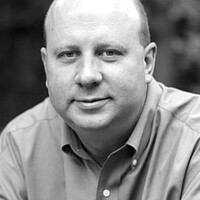Help! I'm 51 and still haven't read nearly half the books on my bucket list
Loading...
A couple of days before my recent birthday, my friend Annabelle arrived with a gift: a canvas book bag decorated with a clock face and bearing the words, “So Many Books – So Little Time!”
The message was meant to be cheering, I think – a celebration of reading as an endless banquet of books, plentiful enough to fill every hour of every day to overflowing.
But read another way, the simple phrase on my new book bag could also be taken as a small, white flag of defeat. No matter how hard you try, the tote bag seemed to be telling me, you will never, ever – even in the longest lifetime – get to all the books you want to read.
Maybe I’m feeling a sense of limits because I just turned 51, an occasion that reminded me one’s supply of earthly years is not, alas, infinite. With maturity also comes the growing recognition that even on a bookworm’s banner days, you never read as much as you think you will.
Take, for example, my birthday tradition of taking the day off to sit in a chair with a favorite book. My family knows that few things give me more pleasure than an idle hour or two with a new volume on my lap, so this indulgence has, as much as cake and candles, become a part of each year’s celebration.
I planned to spend the day with Virginia Woolf’s “The Death of the Moth and Other Essays,” a collection that’s just been reissued by Martino Publishing in a lovely facsimile of the original 1942 edition. How grand to see the day stretching ahead of me, with nothing but Woolf’s graceful sentences to guide me, like a literary breadcrumb trail, from breakfast through dusk.
But my son needed a ride to school, and the dog needed walking, and the bird feeders were empty, and how much time would it take, really, to give my email a quick glance in case someone wanted me? My wife set aside a long lunch hour to visit with me, and as she’s perhaps the only woman I love more than Virginia Woolf, how could I refuse? Before I knew it, late afternoon arrived, and with it the need for a few errands to prepare for my son’s school dance.
This is how a day ostensibly devoted to a good book yielded, at most, perhaps 45 minutes of sustained reading. So many books, so little time, indeed.
If my friend Annabelle, a fellow bibliophile, seems troubled by this reality, she certainly doesn’t show it. Annabelle, now in her eighties, recently offered to loan me “Letters to An American Lady,” a collection of correspondence between English author C.S. Lewis and a long-distance admirer. But Annabelle quickly changed her loan to a gift outright, inscribing the book with a heartfelt message and urging me to keep it.
I could sense her doing the mental math and concluding that there was really no use returning Lewis to her shelf, since she would probably never have time to reread him. But Annabelle seems liberated by the chronological limits of her reading life, not constrained by them. Keenly aware that there are so many books and so little time, she embraces the maddening variety of opportunities, combing libraries and thrift shops for the next great read.
As I ripen into middle age, I realize, too, that reading is really more about quality than quantity. Many years of experience have trained me to quickly sort the wheat from the chaff. I don’t waste nearly as much time as I did in my twenties on literary duds.
An hour with Woolf, as I was recently reminded, beats a whole day with a lackluster bestseller. Woolf knew there would come a time when her own earthly life of reading was over. But she wondered how anything in the afterlife could top a good book.
“I have sometimes dreamt,” said Woolf, “that when the Day of Judgment dawns ... the Almighty will turn to Peter and will say, not without a certain envy when he sees us coming with our books under our arms, ‘Look, these need no reward. We have nothing to give them here. They have loved reading.’”
Danny Heitman, a columnist with The Advocate newspaper in Louisiana, is the author of “A Summer of Birds: John James Audubon at Oakley House.”








